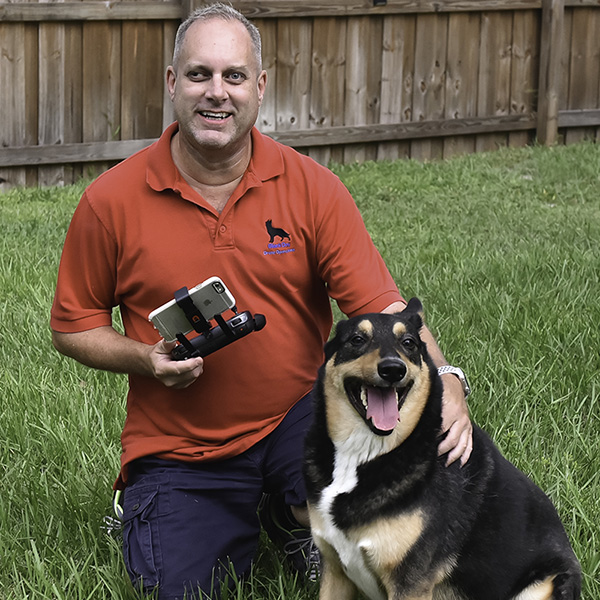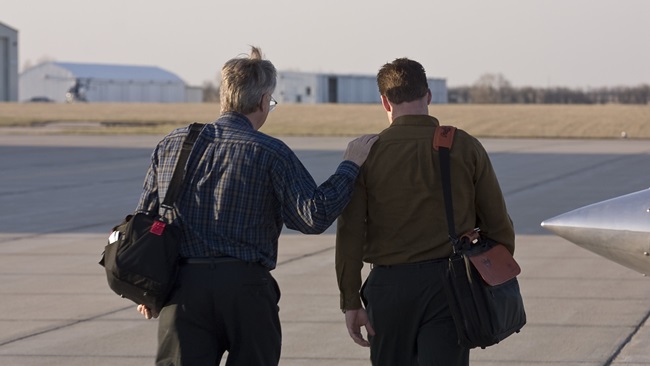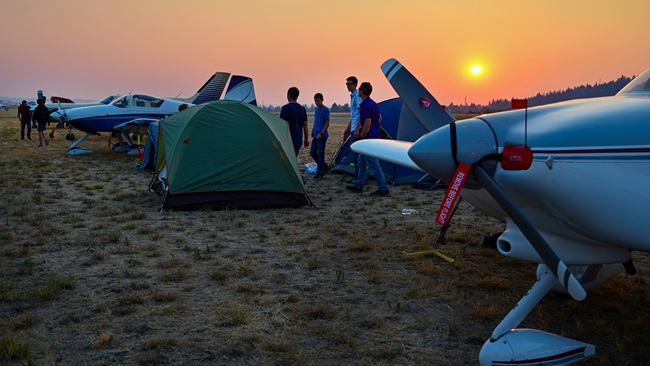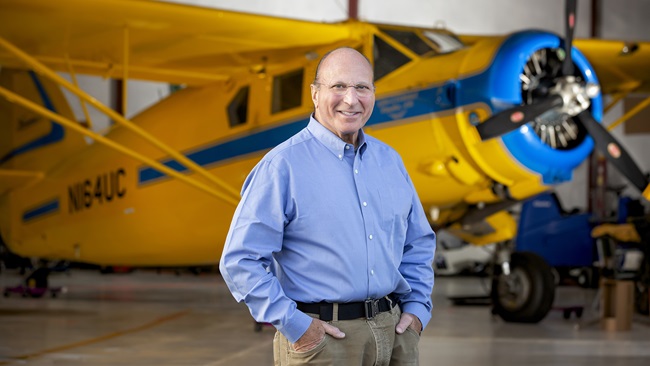Check yourself
Every pilot should be part of their own preflight
Illness, stress, and other physical and emotional distractions can create all sorts of problems. Pilot health, nutrition, and overall fitness to fly should be part of every preflight check. Yes, that means you.
Flying a drone is one of the most exciting, fun, and productive things you can do. With all the preparation and planning that goes into getting the equipment in the air, it can be easy to overlook one very important element—your own health.
A self assessment of your overall health and well-being at flight time can be crucial. Manned aircraft pilots pay a lot of attention to this, and remote pilots should, too, for the same reasons.
Moving parts
One way that I have found to account for flight health readiness is to consider myself a part of my flight gear. As I mentioned above, you must tend to things such as having enough charged batteries, maybe some spare props? So many loose ends to remember. Then, you have to consider all the logistics of when and where to fly and any other mission details.
You have plenty to think about, and if you are not feeling 100 percent, important details are easy to overlook. Obviously, this could lead to a dangerous situation. You, believe it or not, are the most important moving part to this whole equation, so unless you are fully up to speed, no other part of your system should be in the air. There are a number of things to be aware of such as cold or flu, stress, or just a plain bad attitude that can get you into trouble. Be honest with yourself and don’t take your health for granted.
IMSAFE, are you?
The FAA has recognized a handy acronym to help pilots focus on the critical elements of their personal preparation: IMSAFE is a checklist that helps make it easy for you to understand some factors that could inhibit your ability to fly safely:
- Illness: Do I have any symptoms?
- Medication: Have I been taking any prescription or over-the-counter medications?
- Stress: Am I under any psychological pressure? Worried about financial or health issues, family problems?
- Alcohol: Have I had an alcoholic drink in the past eight hours?
- Fatigue: Am I tired or not adequately rested?
- Emotion: Am I upset? (Some versions of the checklist substitute "eating" as a reminder to make sure you're not starving, which can also affect your mental performance.)
Let’s break these down.
I - Illness: Have you been fighting a cold or "that thing going around"? It seems pretty easy to just brush it off, but what happens if you should suddenly have a flare-up of nausea, or, as silly as it may sound, a sneezing fit? This can obviously impair your control of the aircraft even for a few seconds, which could be just enough to lose sight or control. Any potentially debilitating illness should be considered a definite no-fly situation.
Injury can also be a factor. Flying a drone takes a combination of small, smooth movements as you are constantly looking up to the sky, back down to your controller, and turning your head. Your hands are working the sticks and buttons constantly, and you will typically be standing and holding the controller station for a good bit of time. Be sure you don't have any injuries that would prevent you from being able to stay in complete control of the aircraft for the entire flight.
M - Medication: This can tie in with one or more of the other IMSAFE elements. If you have been wrangling the flu, you likely have been taking some medication. Did you read the part of the label that says, "May cause drowsiness" or "Do not operate machinery"? Enough said.
S - Stress: Flying a drone can be a very relaxing and enjoyable hobby. Flying well requires your full attention and concentration. I’ve heard flying a drone compared to riding a motorcycle as you need to give it all your focus but at the same time, it can be almost therapeutic. However, if you are bringing stressful baggage to the table (or flight area, in this case) then you are compromising your ability to focus. Job worries? Relationship problems? Money issues? These are all important matters, but they cannot make their way into your flight plans. Either resolve these issues before you fly or keep your aircraft on the ground until the distractions pass. Again, manned pilots take this seriously, and there's even a tool to help check your stress level.
A - Alcohol: Not flying under the influence should be a no-brainer, but unfortunately it happens. Flying under the influence is not only careless and stupid, it's also quite dangerous. We are already familiar with why not to operate automobiles, machinery, or anything else under the influence, and drones are no different. Remember, "eight hours bottle to throttle" is a minimum standard.
Alcohol is not the only substance that can cause impairment. Medications, over-the-counter remedies for cold and flu, and others can impair your ability to fly. As with other parts of IMSAFE, a combination of risk factors should give you even more reason to stay grounded.
F - Fatigue: Professional drone pilots already know how flying can sometimes be tiring. You have lots to do with preparation and deployment already. Then you have the actual flying and photography to tend to, and the demands can stack up. Couple that with possibly harsh weather, such as here in Florida where high temperatures and high humidity are common in the summer, and you have a recipe for getting worn down quickly.
Be sure to get plenty of rest the day before you fly and remember to drink lots of water. Since your flying will be outside, take along extra water bottles, a hat, and appropriate breathable clothing to keep you cool and avoid heat fatigue or even heat stroke. Also remember to take adequate breaks in the shade to cool off and refresh periodically. And don't forget the sunscreen.
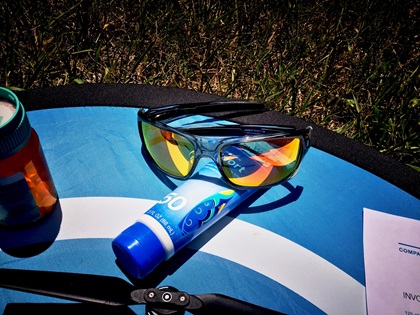
Eye protection is also a must. Keeping your drone in sight can be tricky on those extra sunny days. Wearing a good quality pair of sunglasses not only improves your visual acuity and provides comfort from eye strain, but also protects your eyes from harmful ultraviolet rays. Polarized lenses are great to cut glare, but keep in mind that polarized lenses may be out of phase with your controller screen, rendering it unseeable. For example, I fly my Mavic Pro with either an LG Stylo 3 seated in the controller handles or a full size 9.7" iPad on a mount. I can see my iPad in either landscape (horizontal) or portrait (vertical) orientation with polarized lenses, whereas my LG Stylo 3 is only viewable in portrait. In landscape, which is how it fits into the controller handles, the screen is completely black, as if it were turned off, when viewed through polarized sunglasses.
E - Emotion: Yeah, emotion is an easy one to forget. Being upset over something that didn’t go your way with your flight area or gear and succumbing to the temptation to show off are two examples of behavior that compromises safety. Never let friends try to encourage you to fly beyond your skill level or give in to the urge to show off. The "it will never happen to me" attitude is a recipe for disaster, especially when combined with other IMSAFE elements, say the "A" factor.
And don't forget to eat. Flying on an empty stomach is no fun, and can also be dangerous if it causes you to overlook something important.
If you’ve had a bad day or you are dealing with family issues or other personal burdens, maybe now is not the best time to fly. Emotion and stress are often a great reason to postpone a flight. Emotions can make us act impulsively and irrationally and can obviously become a dangerous distraction.
Again, flying is fun, but safety and responsible operation are top priority as drones are not the toys some think they are. Be professional and maintain a calm, level attitude.
Onward and upward!
It is easy to get caught up in the excitement and fun of flying. Or, if you are flying for work, you may have deadlines or other constraints on your shoulders. In either case, it is always important to take a minute to run through your health checklist and IMSAFE.
Remember, you are the hub of the whole operation, and a weak hub cannot support a strong system. If you are so inclined, even further physical activities can always help increase endurance and improve your overall health. Visiting a gym, taking regular walks, and reading to flex the mental muscles all go a long way to making you a powerhouse drone pilot.
Take care and fly safe!
